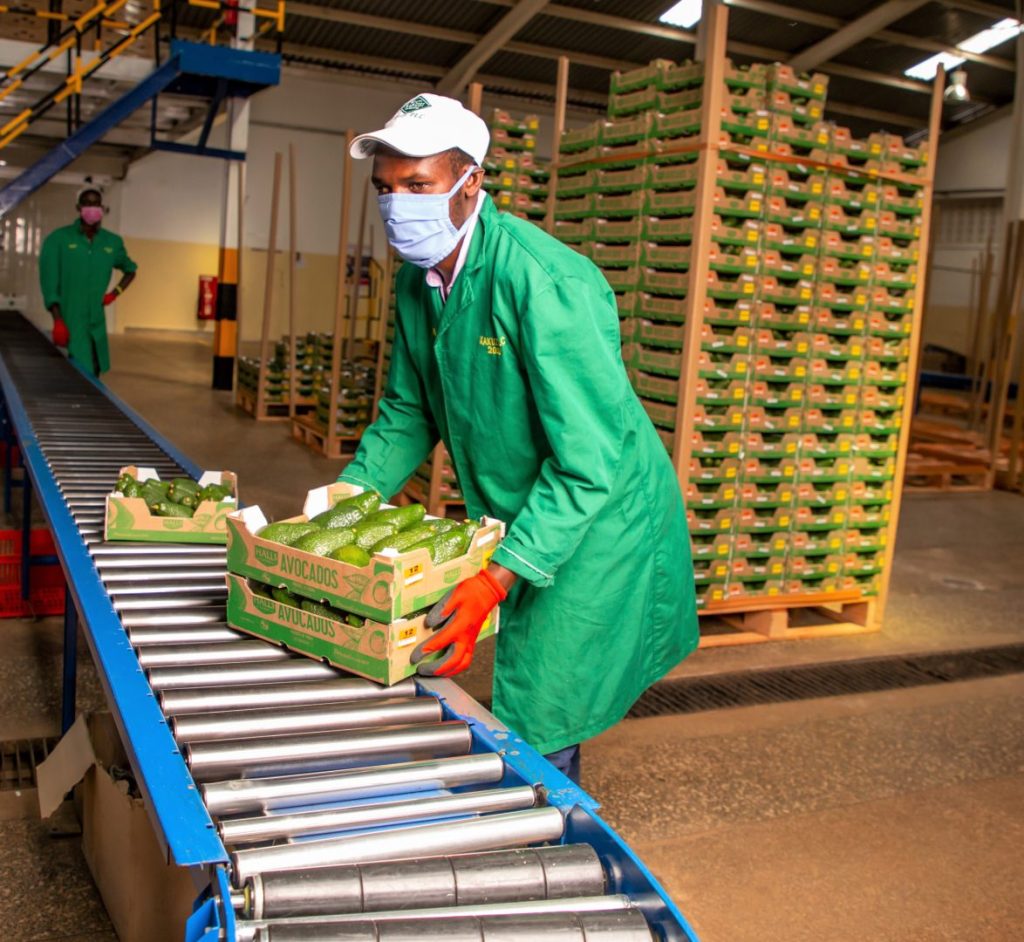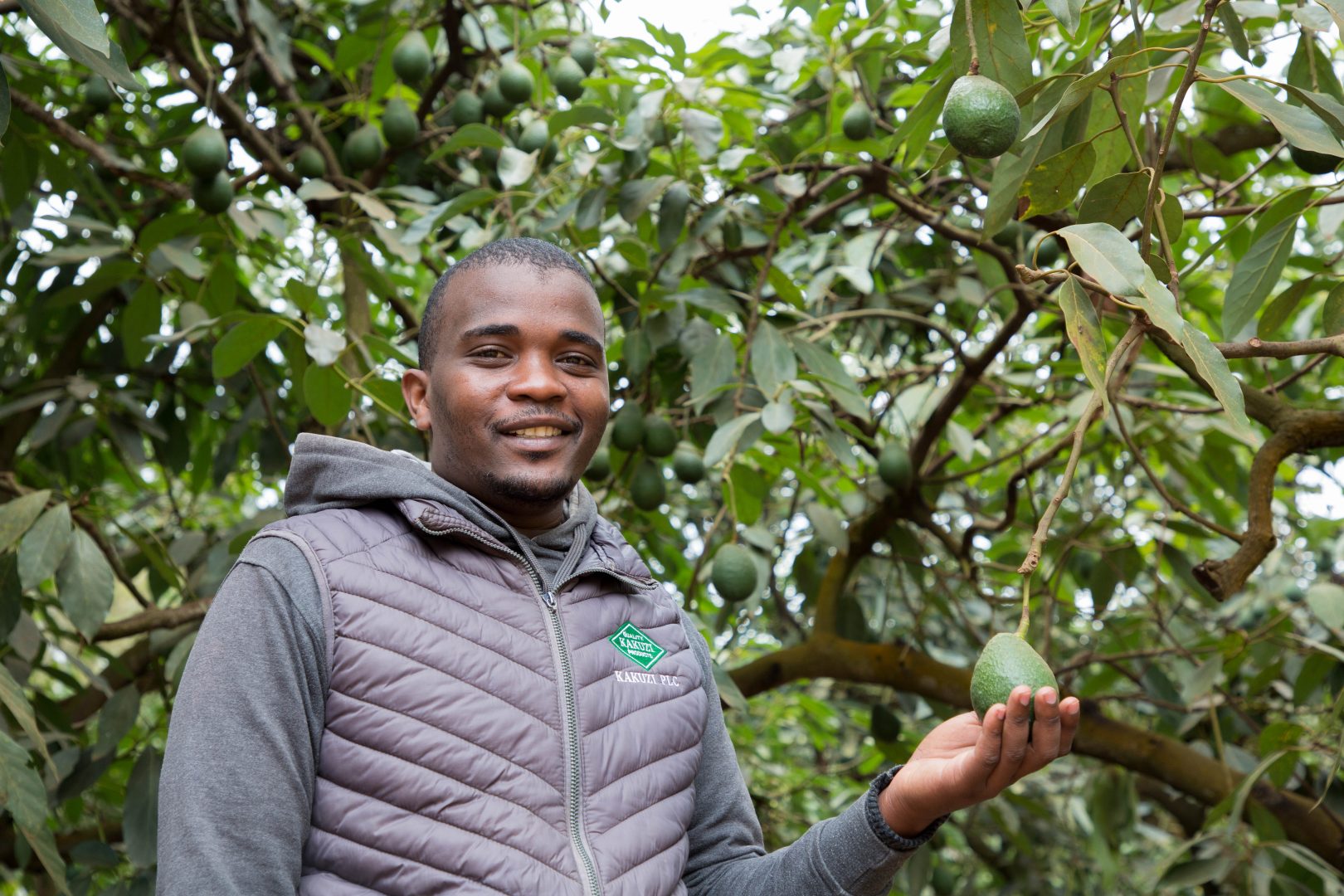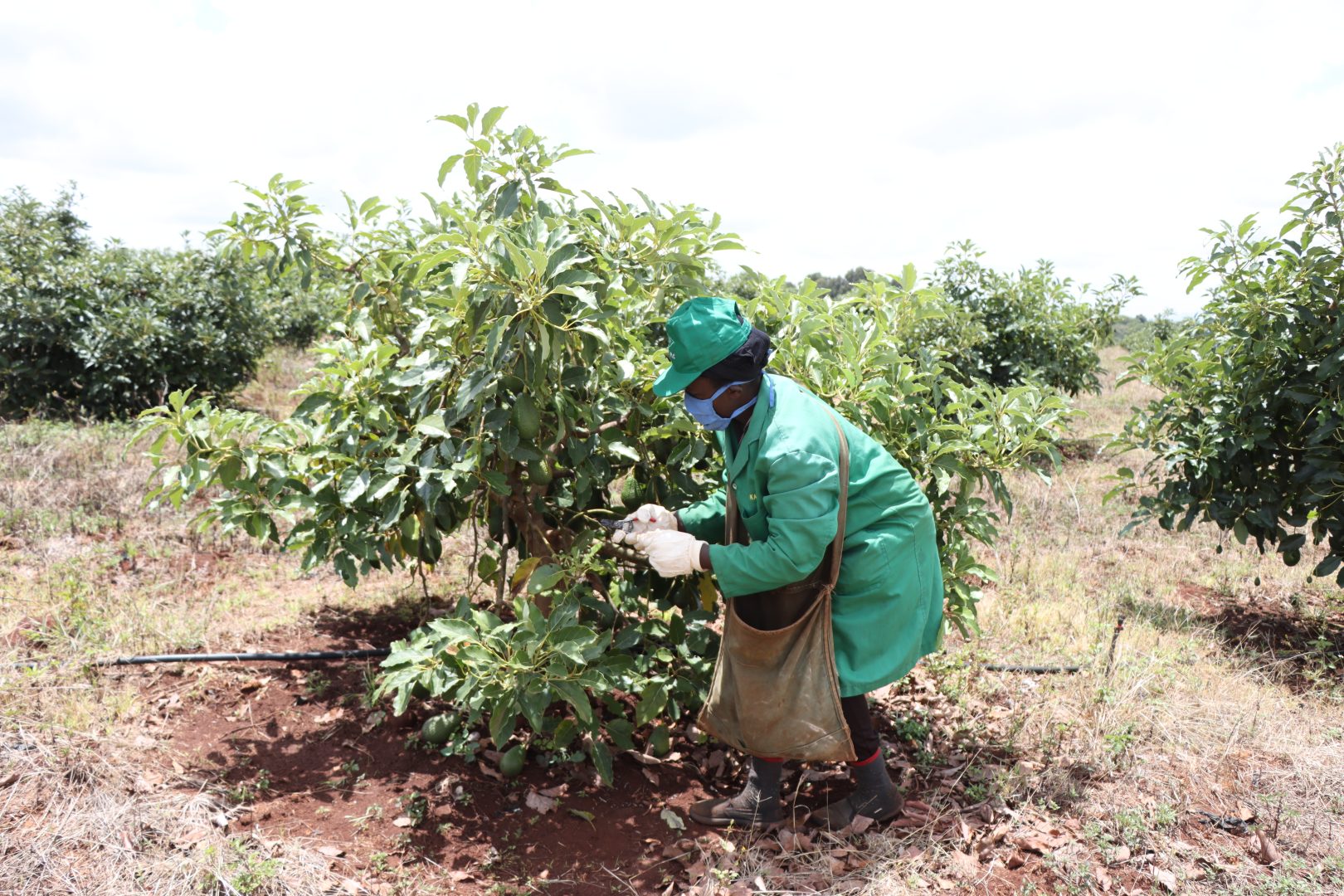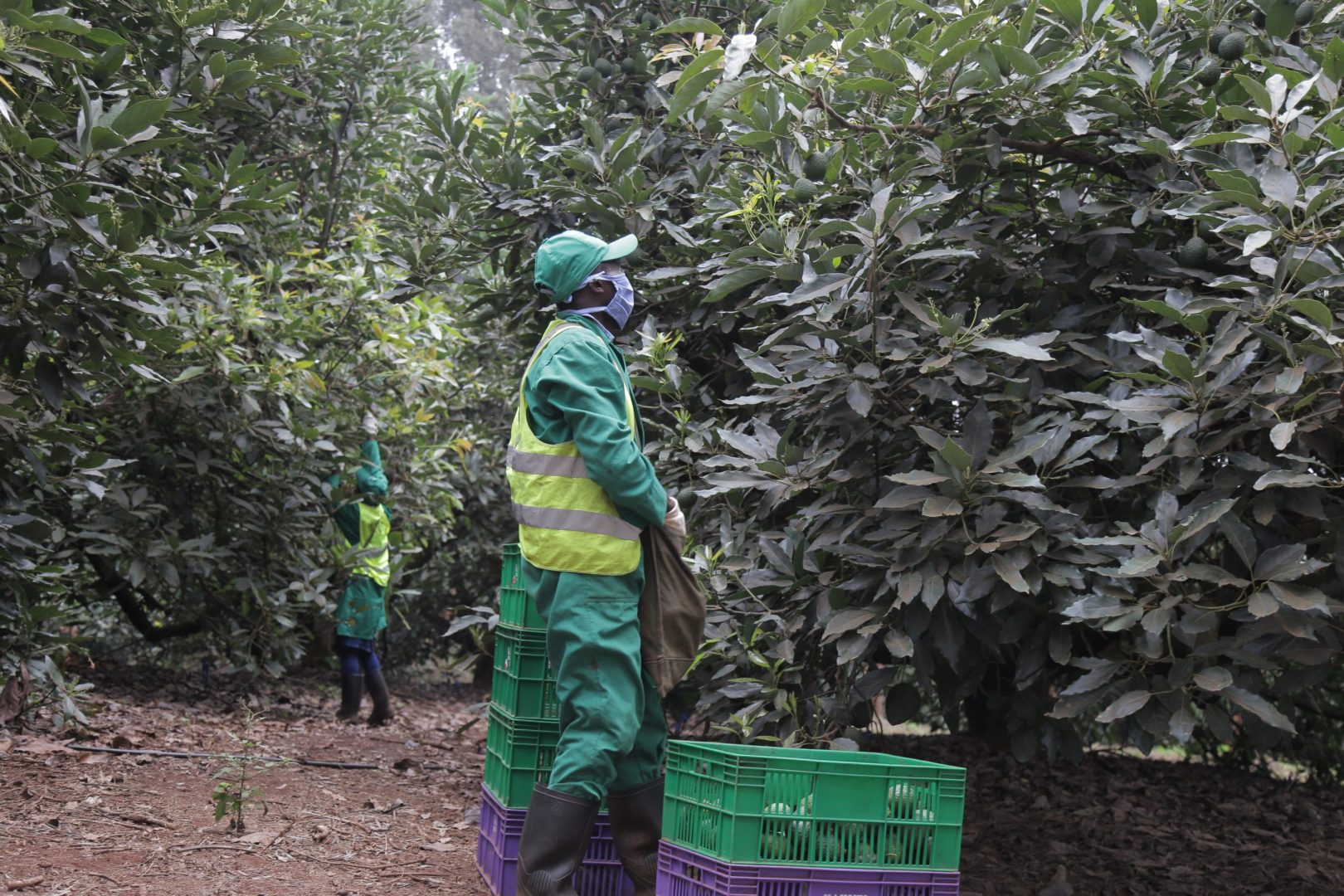On January 7, 2004, Kakuzi announced the closure of its coffee operations, due to losses experienced from coffee trading, and as prospects of the coffee division returning to profitability dimmed.
The coffee plantations made way for avocado, macadamia, and forestry operations. Since then, Kakuzi has been developing avocado orchards which have increased year-on-year to reach 794 hectares in 2020. The agribusiness firm has full control over the entire value chain ensuring complete traceability and a high-quality product.
The firm engages in the cultivation, processing and marketing of avocados, blueberries, macadamia nuts, tea, livestock, and commercial forestry products.
Kakuzi’s Assistant Manager in charge of horticulture operations Jonathan Kipruto says the firm’s avocado production is Global G.A.P., GRASP and SMETA certified while the Avocado Packhouse is FSSC 22000 certified, implying that there is an established Food Safety Management systems to handle avocados from the field through to dispatch ensuring the product is fit for human consumption.
“What is unique about Kakuzi is that there exists full control of the supply chain from seedling, planting, harvesting, and packing to export. This is important because it guarantees that the final product that gets to the consumer is of the highest quality possible,” says Mr Kipruto.
The firm has continued with avocado plantings and has even upgraded the Packhouse which now doubles Kakuzi’s processing capacity and is sufficiently coping with increasing crop levels for future demands.

The global market has been responding positively to Kenyan avocados due to their high potential to provide good quality fruits, and for Kakuzi, in order for the country to secure this market, it has step up its effort to strengthen the capacity of its smallholder farmers to meet the stringent quality and Sanitary & Phytosanitary (SPS) measures meant to protect humans, animals, and plants from diseases, pests, or contaminants required at the global markets.
Avocados accounts for almost half of the country’s fruit export annually with most of the produce absorbed by Europe and the Middle East. Data from the Horticultural Crops Directorate indicates that Kenya exported 67,148,817kgs of avocado between January and July 2021, generating KSh10.88 billion for the country.
Kakuzi Chairman Nicholas Ng’ang’a while speaking during the 93rd virtual Annual General Meeting (AGM) in May said the firm had invested KSh400 million in capital expenditures while focusing on upscaling its smallholder operations value to complement its production capabilities and boost the global positioning of Kenyan avocados.
“It’s critical that the markets only receive good quality fruits from Kenya, and to achieve this, building knowledge of the market requirements amongst farmers is very important,” said Mr Ng’ang’a.
During the pandemic, the market for Kakuzi’s avocados remained solid, despite the almost complete closure of the food retail sector across the firms’ main market. “We expect that there will be some recovery in 2021, but this is not guaranteed. To mitigate this, we continue to trade with our traditional buyers as well as some key new players across 14 different countries,” said Mr Ng’ang’a.
Presently, Kakuzi has 3,500 smallholder farmers, the majority of whom come from central region and a few others from Eastern and North Rift regions.
Kakuzi’s Extension Officer Laban Mwaura says the program ensures continued education for the community and farmers on the latest avocado production technologies, and best management practices. It helps farmers’ access information increasing their yields and in turn driving wealth creation.

“Our main aim is to enable the local farmers access the international market and also be able to grow their fruits in the right way that meets international standards,” says Mr Mwaura.
Earlier in the year, Kakuzi started offering free fruit maturity testing services for smallholder avocado farmers as part of the firm’s out-grower development program. This was to ensure compliance with quality standards and enhance the value of Kenyan fruit in the global market.
In 2020, Kakuzi Avocado Smallholder Farmers received a payment of KSh57.9 million and access to the growing international market. Still in the same year, the firm’s avocado and macadamia export volumes were higher than 2019 but not sufficient to mitigate a significant reduction of 34 percent in the price of avocados due to higher global supply.

Through this program farmers are encouraged to plant the Hass Avocado variety, due to its popularity and ability to attract good prices in the international market. The firm has already secured lucrative markets for Kenyan agri-produce such as avocados and macadamia and has continued adopting a shared prosperity approach by integrating smallholders.
The unique economic empowerment journey with the local avocado farmers so far is a success and one that Kakuzi hopes to transparently sustain, of course, market forces permitting.

 A Kakuzi employee harvesting avocados
A Kakuzi employee harvesting avocados









